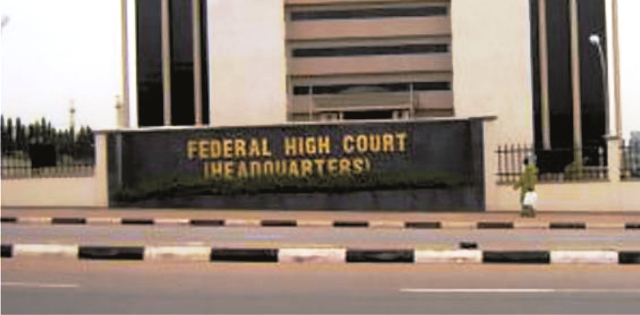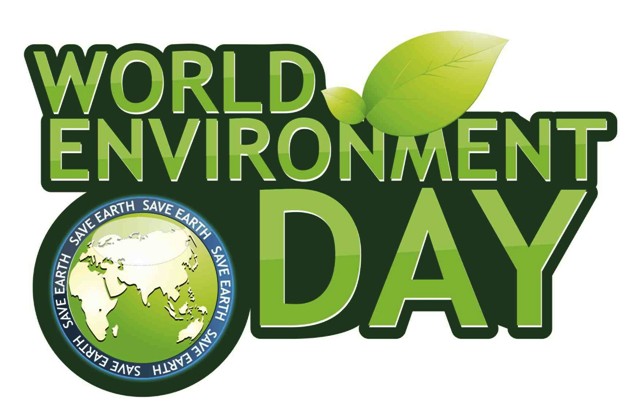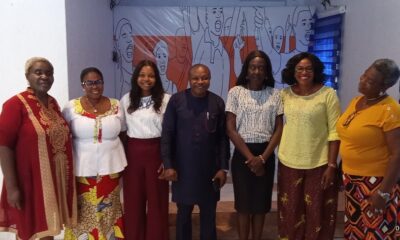Editorial
Still On Fight Against Corruption

Nearly three weeks ago, a Federal High Court in Abuja sentenced former Publicity Secretary of the Peoples Democratic Party (PDP), Chief Olisa Metuh, to a total of 39 years imprisonment for money laundering.
Metuh’s sentencing by Justice Okon Abang which came after four years of trial followed his conviction in a case filed by the Economic and Financial Crimes Commission (EFCC).
The former PDP spokesman will, however, serve only seven years as his prison terms are to run concurrently.
His imprisonment is reportedly on corruption charges regarding his activities preceding the 2015 presidential election which his party lost.
Metuh and his company, Destra Investment Limited, were arraigned on a seven-count charge bordering on money laundering to the tune of N400 million received from the former National Security Adviser, Col Sambo Dasuki (rtd).
While The Tide is in sync with the Federal Government over its resolve to track down suspected looters of the nation’s wealth and recover every dime and property stolen from it previously, we, however, take exception to the selective approach being employed in the otherwise noble pursuit. We are particularly appalled by the use of the media to try suspected offenders before their eventual arraignment in court.
Granted that the present administration has recorded successes in the prosecution of some All Progressives Congress (APC) members who once served as governors, but those were mainly cases already pending in courts prior to its inauguration in 2015.
To be sure, the present Federal Government has spared its officers while showing more determination in investigating petitions raised against officials of the former PDP administration.
The Acting Chairman of EFCC, Mr. Ibrahim Magu, who was appointed by President Muhammadu Buhari in 2015 has had his confirmation as substantive chairman rejected twice by the Senate based on some damning findings against him by the Department of State Services (DSS), yet Mr. President has continued to retain his ‘man Friday’ in the fight against corruption.
Adams Oshiomhole, APC’s embattled national chairman was said to have wooed willing opposition party defectors at a 2019 presidential election rally in Edo State with a promise to have their ‘sins’ forgiven them if only they joined the ruling party. He too was accused of receiving millions of dollars in bribe to favour candidates during the party’s primary polls in 2018.
APC National Leader, Bola Tinubu, was once criticised during last year’s elections after two bullion vans were seen driving into his popular Ikoyi residence in Lagos, raising suspicion that they were conveying money for election rigging. The EFCC has refused to be moved by petitions calling for an investigation.
Kano State Governor, Dr Abdullahi Ganduje, was seen in a video clip that later went viral receiving bribe in dollars from a state contractor. Not a few Nigerians were surprised when Buhari accepted to stand on the same podium with the governor during a presidential campaign rally in Kano and publicly endorse him for re-election.
Lt-General Tukur Buratai is Nigeria’s Chief of Army Staff. He was recently accused of purchasing posh houses in Dubai (UAE) and a sprawling snake farm in Abuja through monies realised from the execution of shoddy contracts while he served as the Director of Procurement at Army Headquarters.
Erstwhile Finance Minister, Kemi Adeosun, resigned from office after the discovery that her National Youth Service Corps (NYSC) Exemption Certificate was forged. An honourable thing to do, no doubt; but a regime that claims to be seriously fighting corruption ought to have probed further rather than ease her off back to England.
Vice President Yemi Osinbajo, Babatunde Fashola, Kayode Fayemi, Chibuike Amaechi and a number of other prominent figures in the Buhari government have individually been petitioned to the EFCC but to no avail. In Amaechi’s case, it was over the sale of Rivers State Government properties while he served as governor between 2007 and 2015.
The Tide has not also forgotten the Federal Government’s initial reluctance to pursue the case of 580,000 British Pounds hanging round the neck of the former Secretary to the Government of the Federation, Babachir Lawal, and the 43 million US Dollars Ikoyi Towers hidden treasure traced to the former Director of the National Intelligence Agency (NIA), Ayodele Oke.
While the African Union (AU) sees Buhari’s posture against graft as deserving of its Anti-Corruption Champion award, Nigeria still ranks 144th (out of 180 countries) on Transparency International’s latest Corruption Perception Index (CPI), which translates to a marginal 100 basis points improvement in percentage terms.
The nation’s anti-corruption fight should not only be about loot recovery. It ought to tackle other official sleazes and misdemeanors. And Mr. President can be said to be equally guilty here. For instance, apart from the Central Bank Governor, Godwin Emefiele, whose appointment he renewed last year, and perhaps one or two others, Buhari’s picks for heads of extra-ministerial agencies have remained largely lopsided in favour of his native North. And this smirks of ethnicity and nepotism.
Well, just as the President suggested in his speech at the EFCC Course Five passing-out ceremony in Kaduna recently, we hope the Federal Government adopts more technology-based systems to help discourage and prevent corrupt practices than continue to encourage the selective vendetta currently being pursued across the land by its so-called anti- graft agency.
The Treasury Single Account (TSA), Bank Verification Number (BVN), Integrated Payroll and Personnel Information System (IPPIS) and the other government adopted automated systems may have their peculiar shortcomings, but they all seem to be working in the main.
Editorial
Responding To Herders’ Threat In Rivers

Editorial
Democracy Day: So Far…

Nigeria’s return to democratic rule in 1999 marked a watershed moment in the nation’s political history. After enduring nearly 16 years of successive military dictatorships, Nigerians embraced a new era of civil governance with the inauguration of President Olusegun Obasanjo on May 29, 1999. Since then, the country has sustained a democratic system for 26 years. But, this democratic journey has been a complex mix of progress and persistent challenges.
The formal recognition of June 12 as Democracy Day in 2018 by former President Muhammadu Buhari acknowledged a long-standing injustice. The annulment of the 1993 presidential election, Nigeria’s freest, betrayed the democratic aspirations of millions. That it took decades to honour this date reflects the nation’s complex relationship with its democratic memory.
One of the most momentous successes of Nigeria’s democracy has been the uninterrupted civilian rule over the last two and a half decades. The country has witnessed seven general elections, with power transferring peacefully among different political parties. This is particularly notable considering that prior to 1999, no civilian government had completed a full term without military intervention. The peaceful transitions in 2007, 2015, and 2023 are testaments to Nigeria’s evolving democratic maturity.
Electoral participation, while uneven, has also reflected a level of democratic engagement. In 2003, voter turnout stood at about 69 per cent, but this figure dropped to approximately 34.75 per cent in 2023, according to the Independent National Electoral Commission (INEC). Although the declining turnout raises concerns, it also highlights the increasing expectations of the electorate, who demand credible and transparent elections.
Another area of progress is the growth of a vibrant and free press. Nigerian media has played a crucial role in holding governments accountable and fostering public discourse. Investigative journalism and civil society activism have exposed corruption and human rights abuses. The rise of social media has further expanded the democratic space, enabling young Nigerians to mobilise and advocate for change, as evidenced by the 2020 #EndSARS protests.
Judicial independence has seen mixed results. On one hand, the judiciary has occasionally demonstrated resilience, such as in landmark rulings that overturned fraudulent elections or curtailed executive excesses. On the other hand, allegations of political interference and corruption within the judiciary persist, undermining public confidence in the legal system’s impartiality.
Nigeria’s democracy has also facilitated the decentralisation of power through the federal system. State governments now wield some autonomy, allowing for experimentation in governance and service delivery. While this has led to innovative policies in some states, it has also entrenched patronage networks and uneven development across the federation.
Despite these successes, Nigeria’s democratic journey faces formidable problems. Electoral integrity remains a critical concern. Reports from election observers, including those from the European Union and ECOWAS, frequently highlight issues such as vote-buying, ballot box snatching, and violence. The introduction of the Bimodal Voter Accreditation System (BVAS) and electronic transmission of results in 2023 elections showed promise, but technical glitches and alleged manipulations dampened public trust.
Corruption continues to be a pervasive issue. Nigeria ranks 145th out of 180 countries on Transparency International’s 2023 Corruption Perceptions Index, with a score of 25/100. Democratic institutions meant to check graft—such as anti-corruption agencies and the legislature—often struggle due to political interference and weak enforcement mechanisms.
Security challenges have also strained Nigeria’s democracy. Insurgency in the North East, banditry in the North West, separatist agitations in the South East, and herder-farmer conflicts across the Middle Belt have collectively resulted in thousands of deaths and displacements. According to the Global Terrorism Index 2024, Nigeria ranks as the eighth most impacted country by terrorism. The government’s difficulty in ensuring safety erodes public confidence in the state’s capacity and legitimacy.
The economy poses another critical remonstrance. Nigeria’s Gross Domestic Product (GDP) per capita stands at approximately $2,400 as of 2024, with over 40 per cent of the population living below the national poverty line. High unemployment and inflation have fueled discontent and disillusionment with democratic governance, especially among youth. Without addressing economic grievances, the democratic dividend will remain elusive for many Nigerians.
Ethnic and religious divisions further complicate Nigeria’s democratic consolidation. Politicians often exploit identity politics for electoral gains, exacerbating social tensions. Although federal character principles aim to promote inclusiveness, they have also sometimes fostered a quota mentality rather than merit-based appointments.
Gender representation remains inadequate in Nigeria’s democratic institutions. Women occupy less than 10 per cent of seats in the National Assembly, one of the lowest rates globally. Efforts to pass gender parity bills have faced stiff resistance, highlighting deep-seated cultural and institutional barriers to female political participation.
Civil liberties, while constitutionally guaranteed, are under threat. Crackdowns on protesters, restrictions on press freedom, and surveillance of activists reveal an authoritarian streak within the democratic framework. The controversial Twitter ban in 2021 exemplified the country’s willingness to curb digital freedoms, prompting domestic and international criticism.
The political crisis in Rivers State embodies broader democratic struggles. Attempts to control the state through undemocratic means expose weaknesses in federal institutions and the rule of law. Immediate restoration of democratic governance in Rivers State is vital to preserving Nigeria’s democratic integrity and institutional credibility.
Local governments remain under the control of state governors, depriving citizens of grassroots democracy. Last year’s Supreme Court judgment on local government autonomy is promising, but state-level resistance threatens its implementation. Genuine autonomy would bring governance closer to the people and foster democratic innovation.
As we mark Democracy Day, we must honour the sacrifices of Chief M.K.O. Abiola, Kudirat Abiola, Femi Falana, Chief Gani Fawehinmi, Pa Alfred Rewane, President Bola Tinubu, and countless others, who fought for Nigeria’s freedom. As democracy in Nigeria continues to evolve after 26 years, this day should inspire action toward its renewal. With despotism and state failure as real threats, both citizens and leaders must take responsibility—citizens by demanding more, and leaders by delivering. Excuses are no longer acceptable.
Editorial
Nigeria’s Plastic Pollution Emergency

Yesterday, Nigeria joined the rest of the world to mark 2025 World Environment Day. The occasion serves as a stark reminder that our battle against plastic pollution requires more than symbolic gestures—it demands sustained, coordinated action from all levels of government. As communities worldwide grapple with mounting environmental challenges, Nigeria’s approach to plastic waste management stands at a critical juncture.
Dr. Ibinabo Ogolo, a Research Fellow at the Institute of Geosciences and Environmental Management at Rivers State University, has issued a timely call for comprehensive enlightenment campaigns targeting indiscriminate plastic waste disposal. Her message resonates with the urgency that characterises this year’s global theme: “Beat Plastic Pollution.”
The core challenge lies not in policy formulation but in implementation. Years of environmental initiatives have fallen short primarily due to inadequate public education and awareness campaigns. Citizens cannot be expected to adopt responsible waste disposal practices without understanding the gravity of their actions or knowing the proper alternatives.
Government platforms at federal, state, and local levels possess the infrastructure necessary to reach every corner of our society. Television, radio, social media, community meetings, and educational institutions provide ready channels for sustained messaging. The tools exist; what remains is the political will to deploy them effectively and consistently.
This year’s World Environment Day theme underscores the global recognition of plastic pollution’s devastating impact on ecosystems, wildlife, and human health. The message is clear: plastic waste represents one of the most pressing environmental challenges of our time, requiring immediate and sustained attention from policymakers and citizens alike.
The health implications of plastic pollution extend far beyond environmental aesthetics. Industrial and medical plastic wastes often contain toxic chemicals with carcinogenic properties, posing direct threats to human health. These materials don’t simply disappear when improperly disposed of-they infiltrate our environment, contaminating soil, water sources, and food chains.
Plastic additives released into the environment create a cascade of contamination that affects entire ecosystems. Wildlife suffers through ingestion, entanglement, and habitat destruction, while humans face exposure through contaminated water, food, and air. The interconnected nature of these impacts demands a comprehensive response that addresses both immediate disposal practices and long-term prevention strategies.
The link between plastic pollution and serious health conditions, including breast, ovarian, liver, and lung cancers, as well as various hormonal disorders, underscores the urgency of public education campaigns. Citizens have the right to understand how their daily choices affect not only environmental health but their own well-being and that of their families.
Despite scientific awareness of ocean plastic pollution dating back approximately 50 years, Nigeria’s rivers, creeks, and waterways continue to suffer from plastic waste invasion. This represents a failure of sustained commitment rather than a lack of knowledge about the problem’s existence and solutions.
The ritualistic approach to World Environment Day celebrations must end. Annual speeches and symbolic cleanups, while valuable, cannot substitute for year-round, systematic efforts to change behaviour and protect our environment. Governments must develop comprehensive frameworks that extend beyond June 5th commemorations.
Sustained enlightenment campaigns require dedicated funding, clear messaging, measurable objectives, and regular evaluation. Success depends on consistency, creativity, and community engagement that transforms environmental protection from a government mandate into a shared cultural value.
The path forward demands that all stakeholders-government officials, community leaders, educators, and citizens-recognize their roles in combating plastic pollution. Only through sustained, coordinated efforts can we hope to achieve the behavioural changes necessary to protect our environment and secure a healthier future for generations to come.
-
Sports2 days ago
Ekiti Honour Contingents On National AGILE Games’ Feats
-

 Nation2 days ago
Nation2 days agoNGOs Urge RSG To Prioritise Child Protection Funding
-
Politics2 days ago
LG Autonomy: ICPC Hails S’Court Decision, Decries Councils’ Funds Misuse
-

 Editorial1 day ago
Editorial1 day agoResponding To Herders’ Threat In Rivers
-
News2 days ago
Tinubu Inaugurates Institute Of Vocational Training, 100 CNG Buses In Kaduna
-
Business2 days ago
PINL Initiatives, Operational Etiquette Excites Bayelsa Stakeholders
-
Business2 days ago
MWUN Backs Nigeria’s Bid For IMO’s Category C Seat
-
Politics2 days ago
Members’ Ego Responsible For PDP Crisis, Not About Atiku Alone -Gov Lawal

